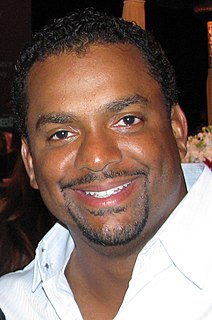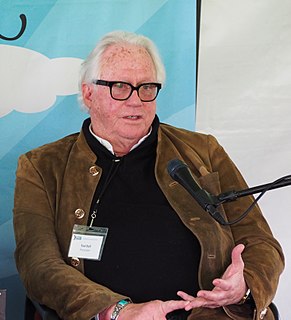A Quote by Deb Caletti
I always say that, for me, writing a book is like a wacky Greyhound bus trip - I know where I'm starting and where I'll end up, but I have no idea what will happen along the way.
Related Quotes
I hate outlines. I have a broad sense of where the story is going; I know the end, I know the end of the principal characters, and I know the major turning points and events from the books, the climaxes for each book, but I don't necessarily know each twist and turn along the way. That's something I discover in the course of writing and that's what makes writing enjoyable. I think if I outlined comprehensively and stuck to the outline the actual writing would be boring.
If I'm writing a story and you're reading it, or vice versa, you took time out of your day to pick up my book. I think the one thing that will kill that relationship is if you feel me condescending to you in the process. And how does that happen? Well, it happens when I know more than you do, and when I know that I know more than you do, and I'm holding it back from you. So that I can then manipulate you at the end. You know, you think about like in a dating situation how terrible that would be, it's the same thing with a book.
When a parent comes into school waving a book and saying, 'Take this book away. I don't like this book.' I won't say in all cases, but in many cases, that will not happen anymore. It has to go through a proper review board. The complaining parent will have to fill out a complaint, you know, put it in writing.
From the movie "Everything is Illuminated" based on a book by Jonathan Safran Foer: I have reflected many times upon our rigid search. It has shown me that everything is illuminated in the light of the past. It is always along the side of us, on the inside, looking out. Like you say, inside out. Jonathan, in this way, I will always be along the side of your life. And you will always be along the side of mine.
One of my fun road trips was [when] a group of guys and I rented a tour bus and we started in Orlando and drove all the way around the country going to baseball games. That was an awesome trip because each night we would go to a new baseball stadium, watch a baseball game, get in the bus, wake up [in] the next city, go to another baseball game. We did this for a little while and it was great. We called that trip the Rats on the Bus and it was a fun trip.
When people say "How do you write a book, how does it all happen?" I say, you line things up, and you line them up as actually as you possibly can, but sooner or later the book has got momentum and it's moving along under that momentum. It's like a sculpture, if you're working with the grain of the wood, the wood will start defining what shape it's going to become.
I think I sent one [book] to Brian Eno. I don't know how I got to know his address, but I sent one to him. He called me up and he said, "I really like the book, and I'm starting a new label, would you liked to do something?" It was a tricky situation for me, because I've always had this thing in my life of a tension between collaboration, which was extremely important to me, and then being alone. Make of that what you will!
E.L. Doctorow said once said that 'Writing a novel is like driving a car at night. You can see only as far as your headlights, but you can make the whole trip that way.' You don't have to see where you're going, you don't have to see your destination or everything you will pass along the way. You just have to see two or three feet ahead of you. This is right up there with the best advice on writing, or life, I have ever heard.
Always, at the end of every book, there are things you will be unsatisfied with, and still more things that later on you will realize were not right. But mistakes are part of what a book is. That itchy, dissatisfied feeling at the end of a novel is useful. It's what keeps you writing and gets you writing the next one. It's what keeps you learning.
In the course of writing a book I'll produce loads of pieces of paper to help the novel itself. Diagrams, charts, family trees. And at the end of each book I'll pack it all away. It takes me a while to do it - it's like a relationship that way; there's a period of letting - go, of grief, in a way - but then I box it up, label it, and put it in the attic.





































